ARE WOMEN’S RIGHTS HUMAN RIGHTS?
Women’s Equality Day was celebrated in the United States last week. August 26 commemorates the day in 1920 when the U.S. government certified the 19th Amendment giving women the right to vote.
Women make up more than half (51%) of the U.S. population, but still only represent 28% of the House of Representatives, 24%of the Senate and 31% of state legislators and executives.
According to a 2022 report by the World Bank, an estimated 2.4 billion women in the world are not granted the same economic opportunities as men.
“Women cannot achieve equality in the workplace if they are on an unequal footing at home,” said Carmen Reinhart, Senior Vice President and Chief Economist of the World Bank Group.
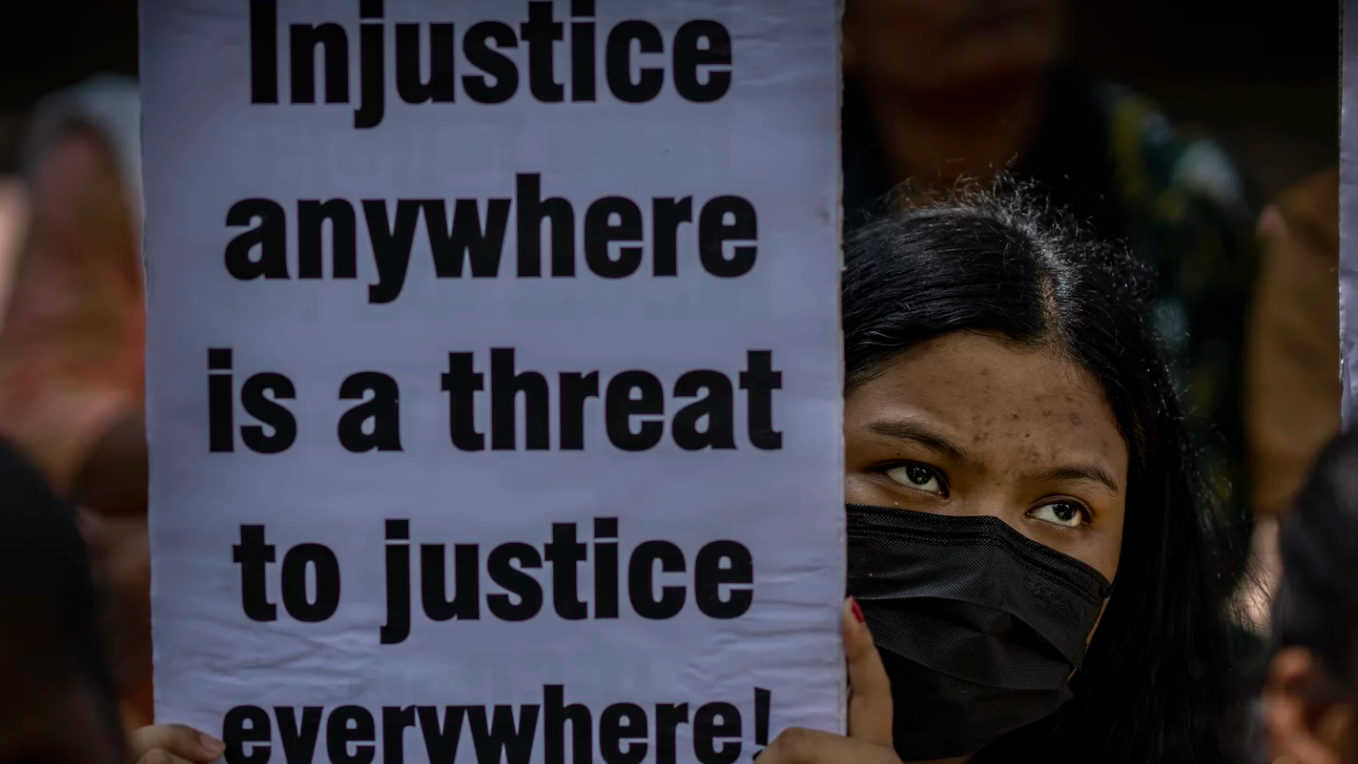
A protest in New Delhi against remission of sentence by the government to convicts of a gang rape.
A protest in New Delhi against remission of sentence by the government to convicts of a gang rape.
RECENT ADVANCES IN GENDER EQUALITY
There are signs of progress around the world to bolster the rights of women.
China’s Hong Kong Special Administrative Region recently recommended 14-weeks paid maternity leave, up from 10 weeks, while Switzerland, Ukraine and Armenia began paid paternity leave, according to the World Bank.
Colombia, Greece, Spain and Georgia have started paid ‘parental’ leave for both genders to take time to bond with a new child. “Laws promoting paid leave for fathers can reduce discrimination against women in the workplace,” said the World Bank.
Bahrain has recently mandated equal pay for work of equal value and along with Pakistan has lifted restrictions on women being able to work at night.
The World Bank report said Gabon has recently made major strides toward equality with reforms to its civil code and laws on the elimination of violence against women. The new laws give women the same rights to choose jobs and where to live as their male counterparts, without having to ask permission. The reforms allow women to be head of household in the same way as men.
In India, only a tenth of the 50,000 candidates running for state and federal positions were women in 2020, according to the Association of Democratic Reforms and National Election Watch.
A Global Gender Gap report in 2021 by the World Economic Forum found India ranked 140th in a list of 156 countries, making it the third worst country in South Asia for women’s political equality. The number of women ministers in India dropped from 23.1% in 2019 to 9.1% in 2021.
But does having more women serving in power positions translate to more rights for a country’s female population?
“It is not the ‘critical mass’ of women that is important in politics, but the ‘critical actions’ they take,” said Tara Krishnaswamy, a co-founder of Shakti, a non-partisan women’s collective in India.
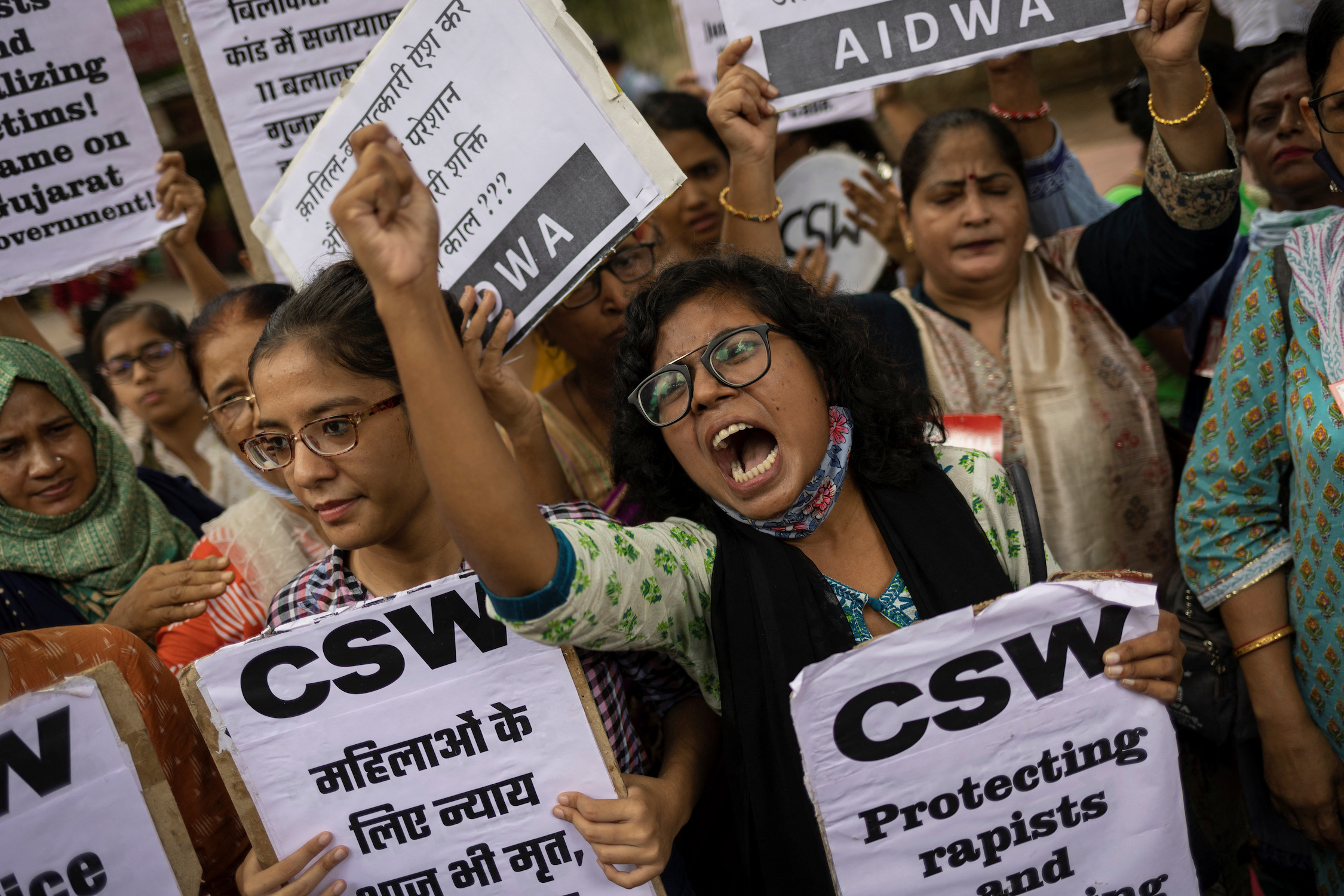
India’s recent decision to release 11 men convicted of gang-rape, murder and unlawful assembly from their life sentences raises questions about societal imbalances and gender-based injustice.
The 11 men were sentenced in 2008 to life in prison for the gang rape of a pregnant Muslim woman during riots that also saw seven of her family members murdered, including her three-year-old daughter. All 11 of the convicted men were freed from their sentences August 15, India’s Independence Day, due to good behavior in prison.
“How can justice for a woman end like this? I trusted the highest courts in our land,” the victim said in a statement this week. The victim said no authorities reached out to her before making the decision.
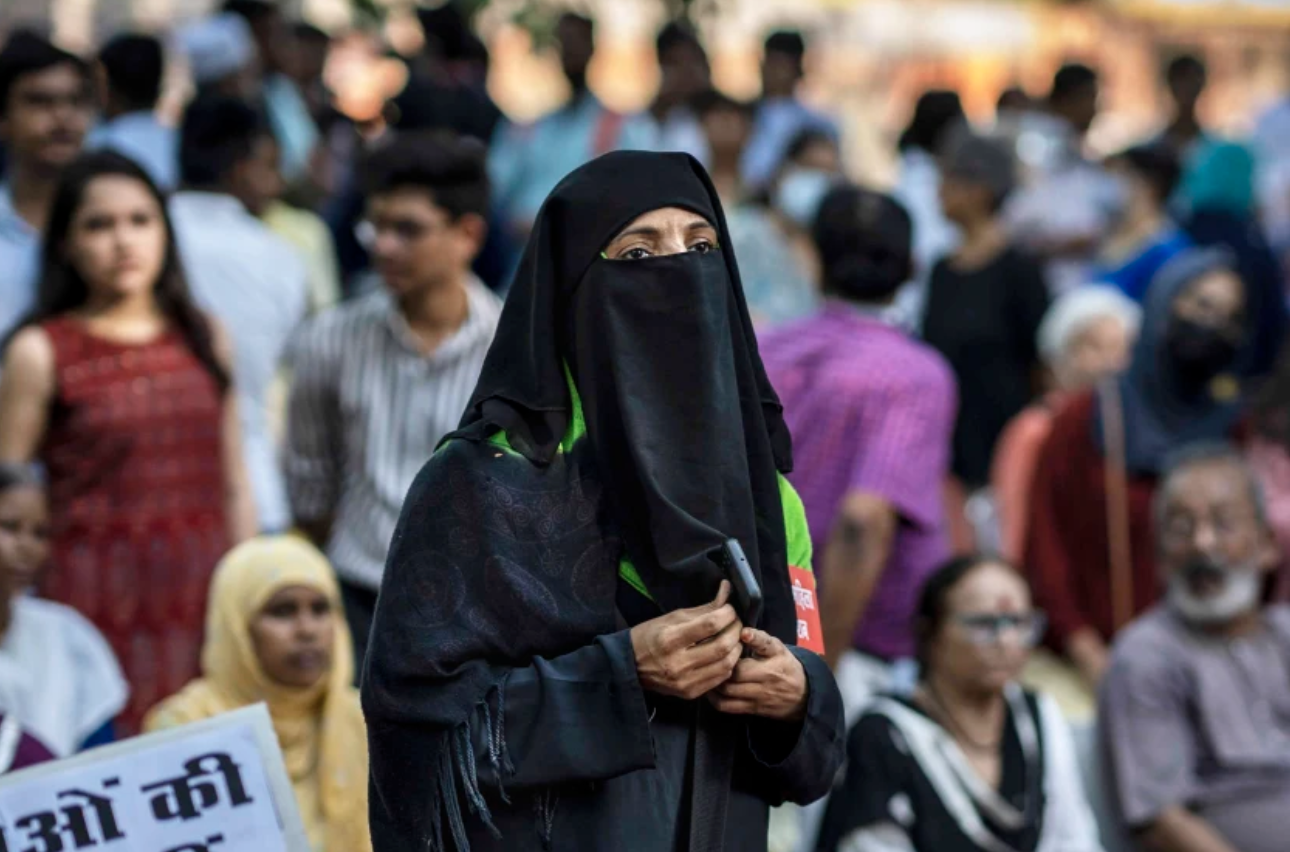
Demonstrators gather against remission of sentence by the government to convicts of a gang rape in India.
Demonstrators gather against remission of sentence by the government to convicts of a gang rape in India.
Indian opposition lawmaker Rahul Gandhi questioned on Twitter India’s Prime Minister Narendra Modi about the kind of message the release of the convicts sent to women in India.
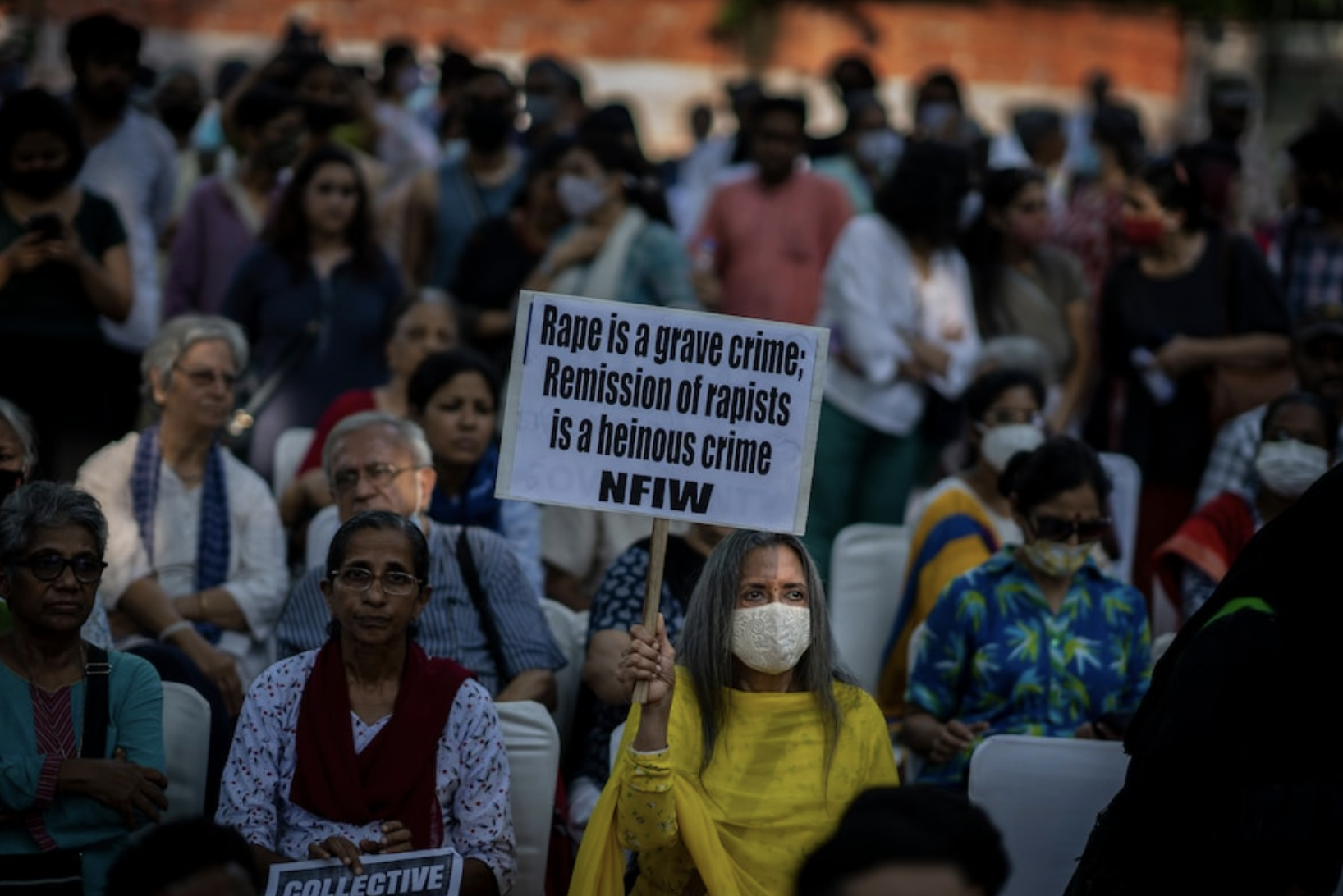
Protesters demonstrate against release of 11 men convicted of a gang-raping a Muslim women.
Protesters demonstrate against release of 11 men convicted of a gang-raping a Muslim women.
SEXISM IN POLITICS
Sexism, which denotes sex-based discrimination, and misogyny, described as a hatred of women, are not interchangeable, but both contribute to gender inequality around the world.
Activists point out that laws and political rhetoric are not enough to close the gender gap, but they say the redefining of social, religious and cultural norms amid the implementation of gender-equalizing legislation is key.
00:09

Finland’s Prime Minister Sanna Marin, leader of one of the most progressive countries in the world, was recently blasted by media outlets following a leaked video that showed her dancing in a boisterous way on a private night out with her friends. The subsequent backlash resulted in her agreeing to take a drug test, which she passed.
A wave of international support came out for Marin in the form of posted videos of women dancing, including one by Hillary Clinton, former U.S. Secretary of State and the first woman to become a major party’s U.S. presidential nominee.
Women in politics are often targets of gender disinformation aimed at humiliating them, often through media stories designed to show them as unintelligent, too emotional or untrustworthy to hold office, according to a report released last year by the Brookings Institution.
The think tank said gendered disinformation can distort the public’s understanding of the actual track record and capabilities of a female candidate and can discourage women from pursuing careers in politics.

“I think most misogynistic behavior is about hostility toward women who violate patriarchal norms and expectations, who aren’t serving male interests in the ways they’re expected to,” says Cornell philosophy professor Kate Manne.
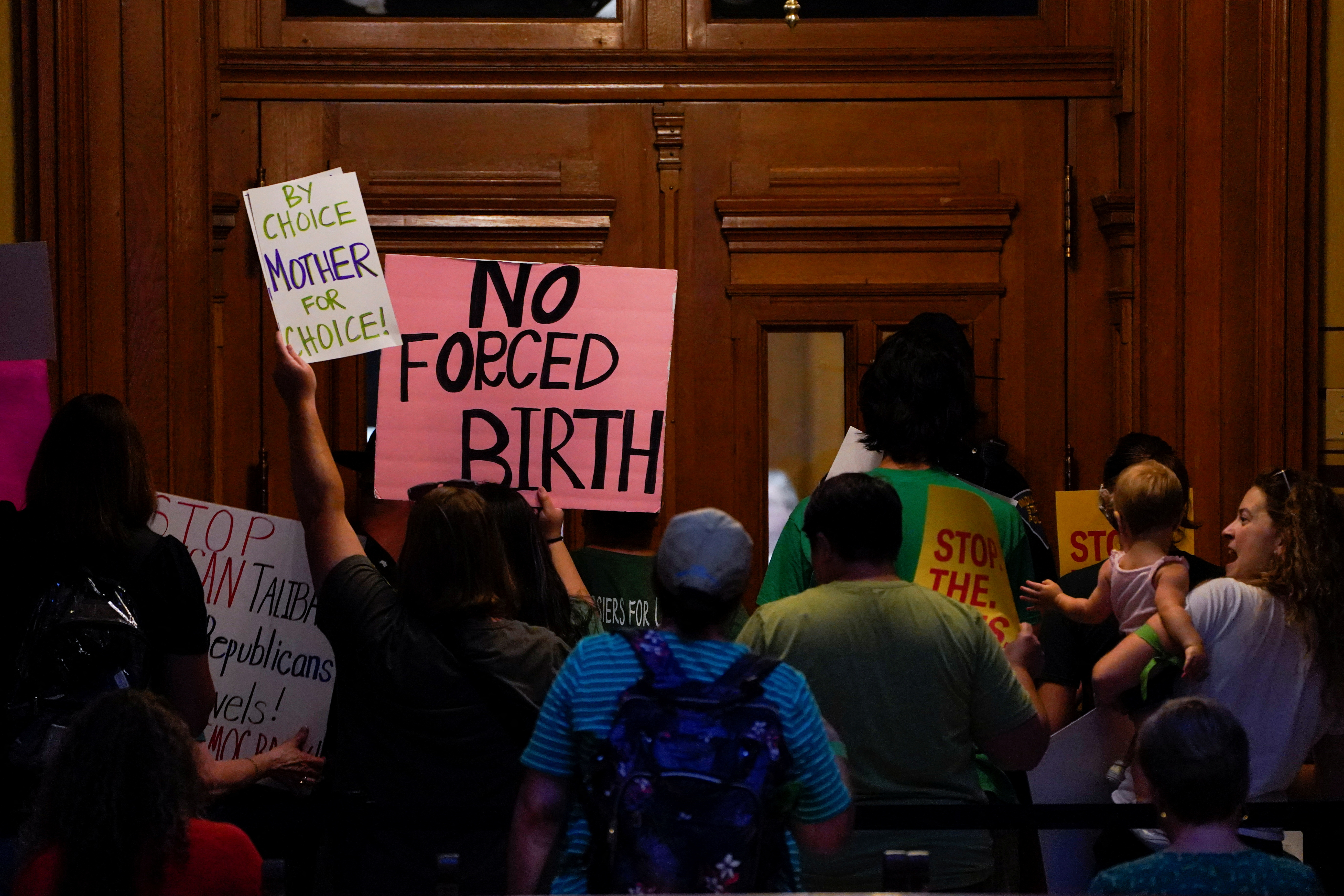
CURBS ON REPRODUCTIVE RIGHTS TURN BACK THE CLOCK ON U.S. GENDER EQUALITY
Women’s rights activists in the U.S. are battling what they say is sexism in light of the recent U.S. Supreme Court's abortion decision. The Supreme Court’s overturning of Roe vs. Wade removed the federal constitutional right to the procedure in the U.S. and instead left it up to each state to decide.
At least 13 U.S. states enacted trigger laws following the ruling, making various forms and conditions of the procedure immediately illegal.
“By continuing its unbridled attack on women’s bodies and forcing them to carry pregnancies to term, the highest court in the land has reached its lowest point, robbing millions of their liberty, bodily autonomy and freedom – the very values the United States prides itself on,” said Dr. Alvaro Bermejo, Director-General of the International Planned Parenthood Federation.
A government dominated by men that makes decisions on behalf of a woman regarding her reproductive autonomy is considered gender-oppressive by women’s rights activists.
“This decision is an unconscionable rollback of fundamental rights for all people in the United States,” said Sarah Stoesz, president and CEO of Planned Parenthood North Central States.
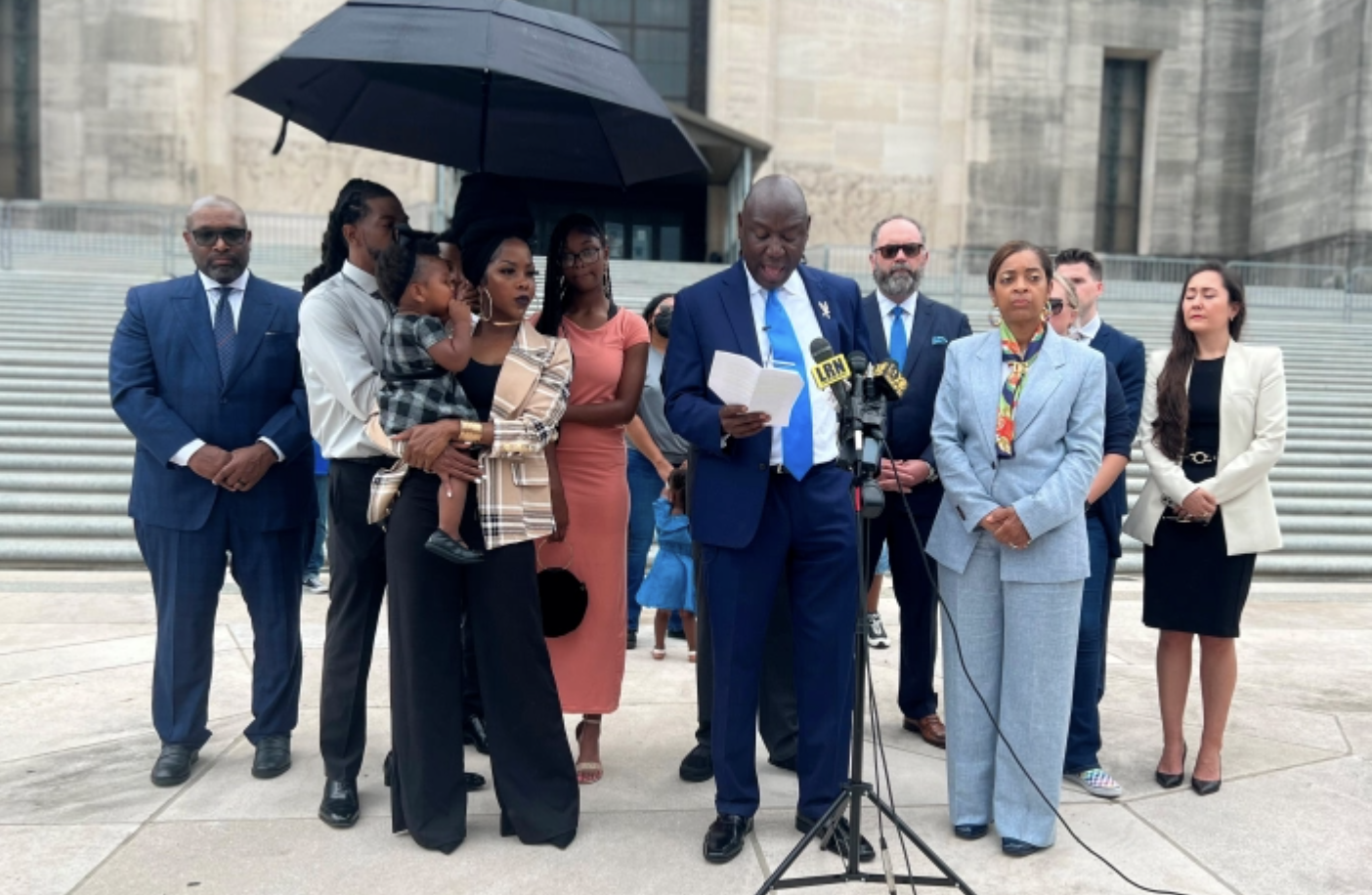
Lawyer for Nancy Davis speaks to press
Lawyer for Nancy Davis speaks to press
The trigger laws that went into effect in the state of Louisiana in June made it illegal for Nancy Davis, a mother of three, to have an abortion at 10 weeks as advised by her doctor.
The fetus Davis carried was diagnosed with Acrania, a rare and fatal abnormality where the skull does not form within the womb, but she was told by her state that the procedure would not be possible.
“Basically, they said I had to carry my baby to bury my baby,” said Davis last week. “This is not fair to me, and it should not happen to any other woman."
BUILDING A MORE JUST AND EQUAL WORLD
Despite a number of reforms toward gender equality worldwide in pay, education, parenthood and politics, many challenges remain.
"Gender equality is not only a fundamental human right, but a necessary foundation for a peaceful, prosperous and sustainable world," the UN says.
Eliminating discriminatory laws, improving underrepresentation of women in political leadership, holding perpetrators responsible for physical and sexual violence against women and girls and correcting long-standing inequalities are necessary steps every country can address for building what the UN calls “a more just and resilient world.”
For more, check out our exclusive content on CGTN Now and subscribe to our weekly newsletter, The China Report.

